Ten years ago, Soul In The Horn began as a playlist. Over the past decade, it has evolved into a New York City institution and a global movement.
Co-founded by DJ Natasha Diggs and producer DProsper, the project grew organically from basement parties in Brooklyn to dance floors across continents, becoming a beacon for musical curation, live instrumentation, and community energy. Over time, what began as a niche gathering of crate-diggers and musical explorers grew in scale — and in spirit.
It has become a place where dancers testify that they’ve found freedom, connection, and even lifelong partnerships. It’s an institution that has consistently resisted superficial trends and clout-chasing, instead elevating artistry, intention, and curation above all. It’s now entering a new chapter with the release of a collector’s edition triple vinyl — part celebration, part archival statement.
To mark this moment, I sat down with Diggs, Prosper, and producer/DJ L3ni to trace the evolution, reveal the philosophy, and chart what the next decade looks like for this movement-driven community.
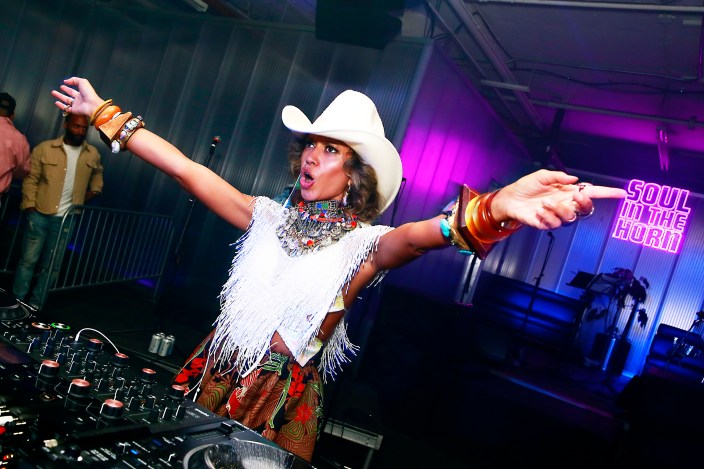
What are we celebrating with this vinyl release? What is Soul In The Horn?
DJ Natasha Diggs: We’re celebrating ten years of Soul In The Horn — a community, an artist ecosystem, and a dance-floor energy that grew from a New York institution into a global movement. The anniversary vinyl captures that story: Some tracks were born from collaborators who met at the party itself.
For anyone new to it, Soul In The Horn began as a Prosper-curated playlist connecting every genre through one thread — the horn — spanning Afrobeat, jazz, disco, house, and hip-hop. From there, it evolved into a party where live horns and DJs pushed New York nightlife to dig deeper, and where the goal was bigger than a night out: a place to dance, connect, and make lasting memories.
Why does dancing and community still matter in an AI-and-social-media world?
Diggs: Because it reminds us we’re human. When we dance together, we become mirrors for each other. You feel your body, you connect. People tell me Soul In The Horn is their therapy, their church, their freedom. Since phones took over, that culture of actually dancing has been lost. Our intention was to bring it back.
If this vinyl were in a record store, where would it sit?
DProsper: Behind the counter, in that $80-to-$100 section — the record they brag about having. It’s a DJ record you can open the night with, peak the night with, or close the night with. It bridges house, R&B, and hip-hop. It’s for true music lovers.
Listening through the album, it feels like each of you anchored a different act — Prosper brought the hip-hop energy, L3ni the dance-floor movement, and Natasha the experimental live-instrumentation vibe.
Diggs: Exactly. Act 1 leans R&B/hip-hop, Act 2 is more house, Act 3 has a spiritual, boundary-pushing energy. We curated it intentionally to move through those worlds.
Prosper: We made a lot of records to get there. Natasha’s track feels like Yusef Lateef or Bobby Hutcherson. L3ni’s is dance-centric. Mine nods to the Native Tongues era — Tribe, Slum Village, that lineage of storytelling and groove.
L3ni: I’d been making dance tracks, so that fit naturally. The one that made the cut was fully original — no samples to clear — and it just felt right. It’s called “Dance And Sweat,” and that’s really the message.
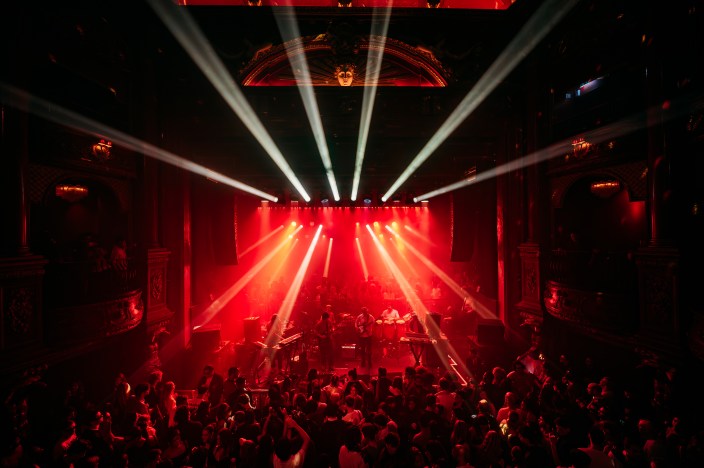
What do younger DJs and promoters ask you most — and what do you tell them?
Diggs: People are inspired by what we’ve built and want to know how we’ve lasted a decade. My answer is: know your intention. If you’re doing it for community, not clout, the universe will open doors. It’s not easy — there are ups and downs — but purpose keeps you in it.
Prosper: Being a “lit” DJ is fine if that’s your intention. But if you want community, that’s a different calling. We built a safe, spiritual space — black, white, gay, straight, everyone together. Like the old Palladium or Limelight: multiple rooms, real connection. Somewhere along the way, people stopped dancing and started clout-chasing. We wanted to bring it back to music as experience, not spectacle.
There’s constant debate around gatekeeping versus openness in nightlife. How do you protect the vibe without closing people out?
Diggs: The vibe attracts the tribe. We’ve always been careful about who and what we partner with. We grew organically — from a Cuban-jazz basement to big venues — without outside promoters. It’s word-of-mouth and energy. We’ll never book someone just because they’ll sell tickets. If the energy’s not right, it’s not Soul In The Horn.
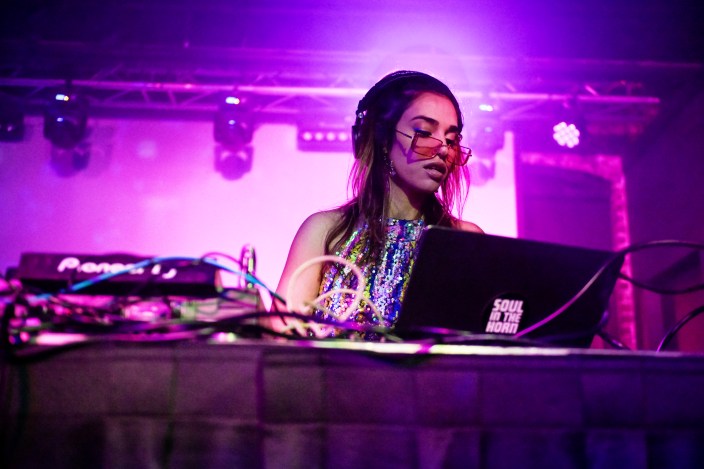
Ever had someone with a big name come in and miss the vibe?
Diggs: [Laughs] Not really — but even legends adjust. When Grandmaster Flash played, he came to the party first to feel the room. I told him, “Bring us back to the block parties, 1982 Wild Style energy.” He nailed it. People take this crowd seriously — it’s an educated dance floor. If you’re playing shallow, safe stuff, they’ll know.
If the vibe dips, what records never fail at Soul In The Horn?
Diggs: Patrice Rushen’s “Haven’t You Heard.” That’s the anthem.
L3ni: Roy Ayers’ “Running Away.” Total classic.
Prosper: Prince’s “Chelsea Rogers.” Horns, groove, and everyone moves.
What’s next?
Prosper: We’re expanding the label, putting out more music, and dreaming about a Soul In The Horn festival — something that bridges generations and genres. Think Esperanza Spalding, Just Blaze, Kokoroko, and Natasha Diggs all on one lineup. Real musicianship and frequency, not algorithms.
Where do you guys want people to cop this? You want them to go to their local record store?
Prosper: Cop it at your local record store. Fat Beats is distributing worldwide.
Diggs: And if you want the exclusive gold vinyl, that’s at soulinthehorn.com.
That’s where I’ll be going.
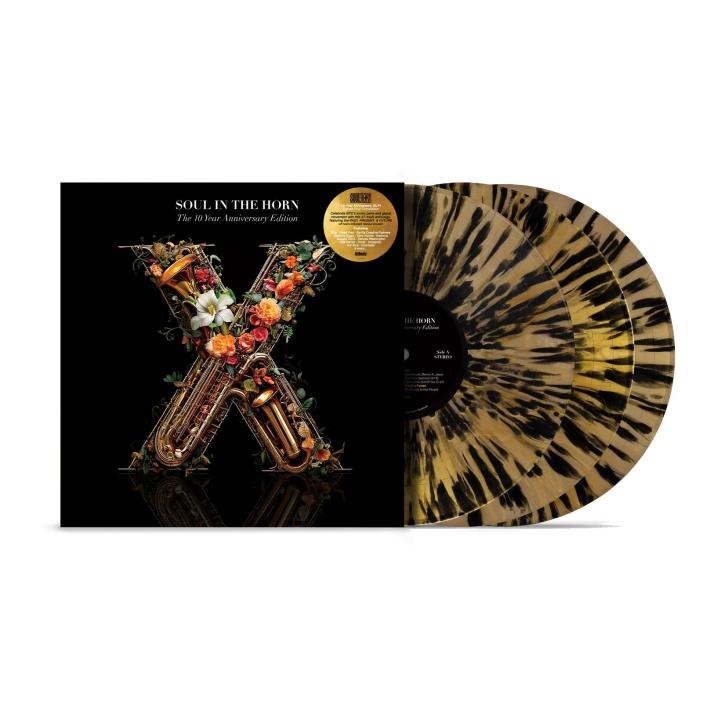
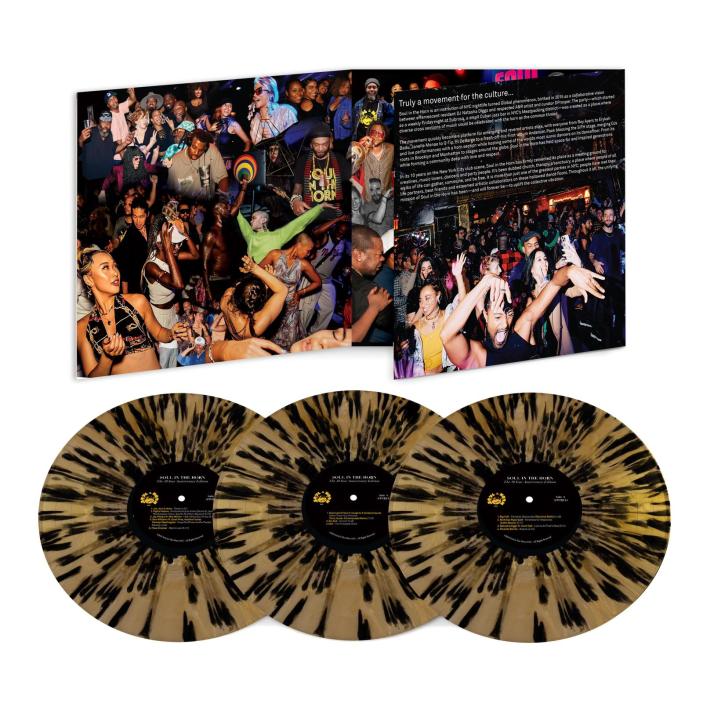
Soul In The Horn – The 10 Year Anniversary Edition is out 10/17 via Fat Beats. Find more information here.







